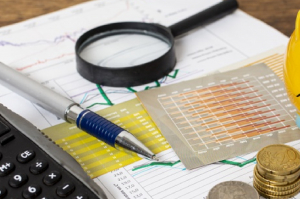COVID-19 has affected businesses in India and the world over. Economical transactions have slowed down dramatically due to border closure & restricted travel. Face-to-face meetings are no longer an option. All this has posed a real challenge for due diligence in Merger & Acquisition activities. In a post-pandemic world, due diligence activities are poised for a paradigm shift. Let us see how it will affect the M&A processes and the changes we need to accept.
What is Due Diligence?
Due diligence is a process performed by investors which involves investigation and verification of a potential investment opportunity. It is a risk assessment tool to scrutinize the authenticity and accuracy of several aspects of a company like corporate structure, supply chains, litigation, licenses, finance, and employment. Due diligence is a time-consuming process but is critical when it comes to an M&A deal as it helps the buyer with the true evaluation of the seller.
How COVID-19 affects the due diligence process?
The overnight conversion of a physical work environment into a virtual one has posed unforeseen challenges on the credibility aspect of due diligence which involves the ability to substantiate information, thereby adversely impacting the very foundation of any due diligence process. You can no more conduct on-site visits or at least not with the same level of transparency that you did before. There are physical restrictions to inspect original paper documents of the target company which cannot be practically moved out or virtualized. Tasks such as background inspection, interviews with key personnel, and reference checks – which require in-person meetings – also become risky to conduct. And then there is the chance of a potential misuse by third parties conducting due diligence, who may blame lockdown restrictions as an excuse for their inability to access documents and deliberately dodge costly and demanding process.
What is the new way?
Right now, going digital seems like the only way to tackle these unprecedented changes. But it’s easier said than done. Here are a few ways in which due diligence can be conducted on their respective departments in the light of the COVID-19 outbreak:
Finances:
The financial arrangements can be assessed based on the modifications made on loan terms, agreements with lenders, alteration in original contracts or termination of loans.
Supply-chain management:
Check the target company’s existing supply chains and their process of supplier risk assessment, scrutinize the impact on suppliers due to the pandemic and the company’s ability to find adequate substitutes during a critical time period to prevent a shortage of supply
Corporate Governance:
The preparedness of target companies should be judged by the changes made in their corporate governance, in response to the pandemic.
Insurance:
The target company’s insurance policies should be carefully analyzed to correctly assess the possibility of mitigating losses such as coverage for business interruption and losses due to force majeure events.
Workforce:
It is important to review the target company’s remote working policies and infrastructure of the company. If a company is running its operations during lockdown or unlocking, then compliance report with safety measures and protocols that need to be implemented must be examined. You should also check the impact on employee salaries, the implementation of medical and pension plans, and the safety of the workforce.
Data confidentiality:
Since employees would be remotely working for a long time and invariably accessing data from their personal laptops, confidentiality of data may be compromised. The target company’s cybersecurity practices and preparedness to deal with breaches should be critically evaluated.
Litigation:
Due diligence involves assessing the impact of delayed litigation process due to the restricted functioning of courts on the company’s pending litigation.
Tailoring the Due diligence process to adapt to the ongoing situation will make it possible for contracting parties to proceed with the M&A transaction. Investors should also consider hiring sector-specific experts for conducting this intricate due diligence. It is also the moral responsibility of the selling company to co-operate in these trying times of COVID-19 which will have a lasting impact on the way business works. Instead of waiting for things to get back to normal, let us adopt the new way. If you are thinking about acquiring another business, merging with one or adding suppliers to your business, CRIF Business Information Report lets you perform in-depth due diligence by looking at the key issues of the business including financial risks, legal issues, Operational risk and supplier and buyer relationships. Contact CRIF, today.

